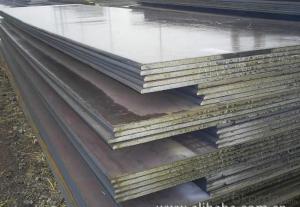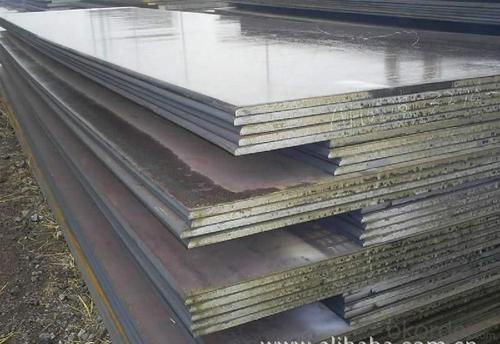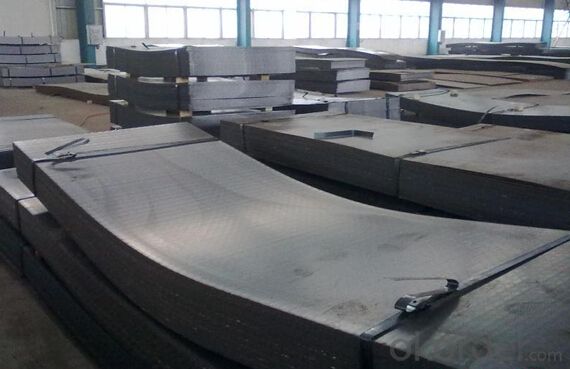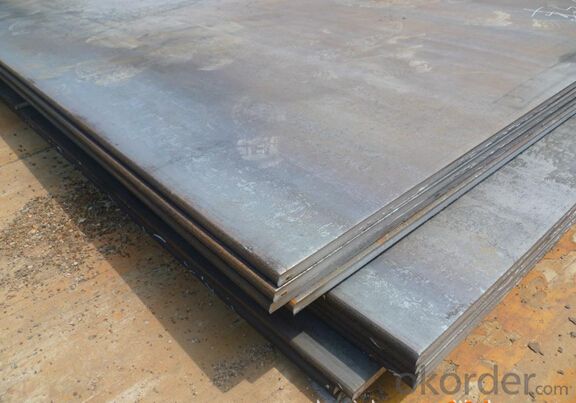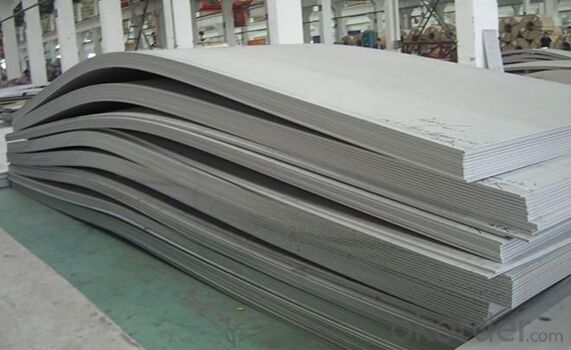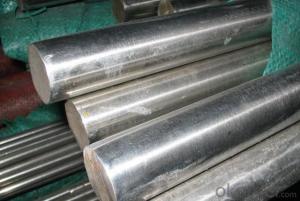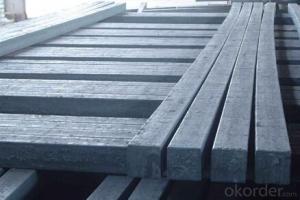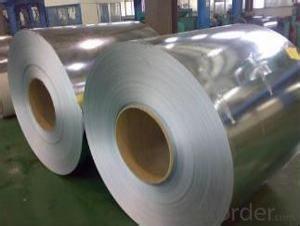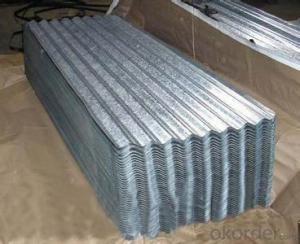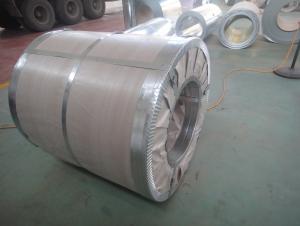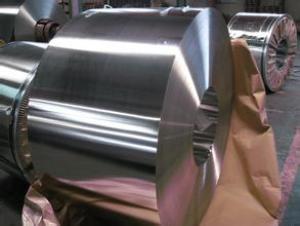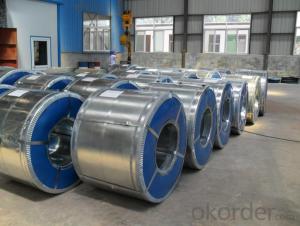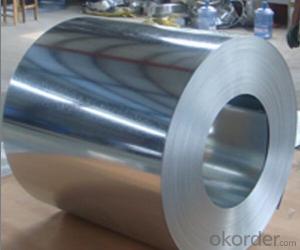Hot Dip Galvanized Steel Coil Sheet in Grades
- Loading Port:
- Tianjin
- Payment Terms:
- TT OR LC
- Min Order Qty:
- 5 m.t.
- Supply Capability:
- 10000 m.t./month
OKorder Service Pledge
OKorder Financial Service
You Might Also Like
Specification
Hot Dip Galvanized Steel Coil Sheet in Grades
Specification of the Hot Dip Galvanized Steel Coil Sheet in Grades
| NAME | PPGI | GALVANIZED | GALVALUME/ZINCALUME |
| CERTIFICATE | ISO9001:2008 | ||
| STANDARD | EN10142 JIS G3302 GB/T-12754-2006 | ASTM A653M JIS G3302 GB/T2518 EN 10142 | ASTM A792M JIS G3321 JIS G3317 EN 10215 |
| GRADE | CGCC CGCH CGCD1-CGCD3 CGC340-CGC570 | DX51D+Z/DX52D+Z/S250GD+Z S300GD+Z/S350GD+Z/S550GD+Z SGCC/SGCH/SGCD1-SGCD3/SGC340-SGC570 G2+Z/G3+Z/G250+Z/G300+Z G350+Z/G550+Z | DX51D+AZ/DX52D+AZ/S250GD+AZ S300GD+AZ/S350GD+AZ/S550GD+AZ SGLCC/SGLCD/SGLC300-SGLC570 G2+AZ/G3+AZ/G250+AZ/G300+AZ G350+AZ/G550+AZ |
| COATING | RAL COLOURS | Z60g/m2 to Z275g/m2 | AZ30g/m2 to AZ150g/m2 |
| SIZE | (0.13mm-1.5mm)X1000mm OR as requirements | (0.13mm-4.0mm)X1500mm OR as requirements | (0.12mm-4.0mm)X1500mm OR as requirements |
| TYPE | Steel coil Steel sheets/plates Corrugated steel sheets/plates | Steel coil Steel sheets/plates Corrugated steel sheets/plates | Steel coil Steel sheets/plates Corrugated steel sheets/plates |
| TECHNIQUE | Hot rolled-cold rolled -galvalume /galvanized -PPGI/PPGL | Hot rolled-cold rolled -galvanized | Hot rolled-cold rolled -galvalume /Aluzinc |
| SURFACE TREATMENT | Mini/regular/big/zero spangle,Chromate treatment /chromate-free treatment /untreated unoile/oiled, TENSION LEVELLER SKIN PASS anti-fingerprint/un-anti-fingerprint, Coating,color | Mini/regular/big/zero spangle,Chromate treatment /chromate-free treatment /untreated unoile/oiled,TENSION LEVELLERT SKIN PASS anti-fingerprint/un-anti-fingerprint,Coating | |
| APPLICATION | Structural use ,roofing, commercial use, household appliance, industry, family Roofs and outside walls of civilian and industrial buildings, garage doors, fencings and window blinds; Outer clad sheets for washing machine, refrigerator, televi-sion, air conditioner and ventilation system, explosion-proof strip, solar water heater and appliance parts; Muffler, heat shields of exhaust pipe and catalytic converter, auto parts & accessories under the frame, signboard in high -way; Electric control cabinet, industrial refrigeration equipment, automatic vending machine; Wear resistant steel, high- strength - steel plate | ||
Supplier of the Hot Dip Galvanized Steel Coil Sheet in Grades
CNBM International Corporation is the most import and export platform of CNBM group(China National Building Material Group Corporation) ,which is a state-owned enterprise, ranked in 270th of Fortune Global 500 in 2015.
With its advantages, CNBM International are mainly concentrate on Cement, Glass, Iron and Steel, Ceramics industries and devotes herself for supplying high quality series of refractories as well as technical consultancies and logistics solution.
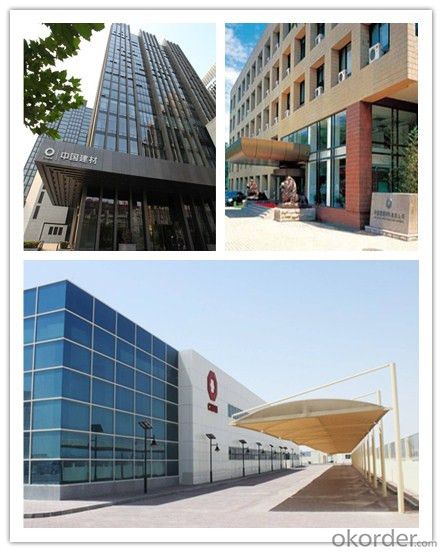
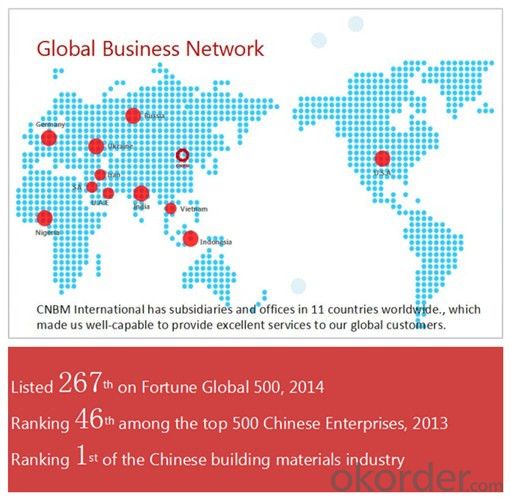
Delivery of the Hot Dip Galvanized Steel Coil Sheet in Grades
Packaging Detail | Sea worthy packing /as per customer's packing instruction |
Delivery Detail | 15 ~ 40 days after receiving the deposit |
Products Show
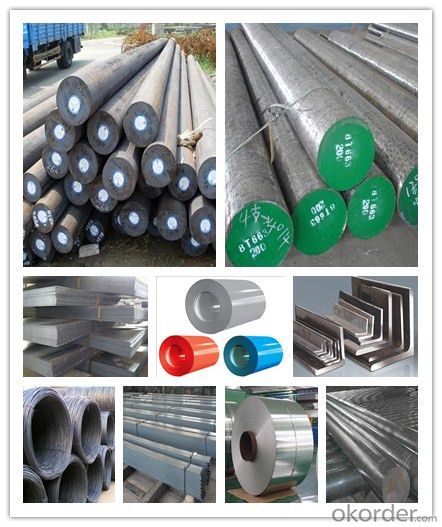
FAQ:
Are you a trading company or manufacturer? | Manufacturer |
What’s the MOQ? | 3 metric ton |
What’s your delivery time? | 15-35 days after downpayment received |
Do you Accept OEM service? | Yes |
what’s your delivery terms? | FOB/CFR/CIF |
What's the Payment Terms? | 30% as deposit,70% before shipment by T/T |
Western Union acceptable for small amount. | |
L/C acceptable for large amount. | |
Scrow ,Paybal,Alipay are also ok | |
Why choose us? | Chose happens because of quality, then price, We can give you both. Additionally, we can also offer professional products inquiry, products knowledge train (for agents), smooth goods delivery, excellent customer solution proposals. |
What's your available port of Shipment? | Main Port, China |
What’s your featured services? | Our service formula: good quality+ good price+ good service=customer's trust
|
Where are your Market? | Covering more than 160 countries in the world |
- Q: What are the different methods of testing special steel for quality assurance?
- There are several methods commonly used for testing special steel to ensure quality assurance. These methods include: 1. Chemical Analysis: This involves determining the composition of the steel by analyzing its chemical elements and their respective quantities. This helps to ensure that the steel meets the specified requirements and is free from any impurities. 2. Mechanical Testing: Mechanical testing assesses the strength, hardness, and other mechanical properties of the steel. Tensile tests, hardness tests, impact tests, and fatigue tests are some of the common mechanical tests performed on special steel. These tests help to evaluate the steel's performance under different conditions and ensure it meets the required standards. 3. Non-Destructive Testing (NDT): NDT techniques are used to detect any surface or internal defects in the steel without causing any damage. Magnetic particle testing, ultrasonic testing, radiographic testing, and dye penetrant testing are commonly employed methods for NDT. These tests are crucial in identifying any flaws that may compromise the steel's structural integrity. 4. Metallurgical Analysis: Metallurgical analysis involves the microscopic examination of the steel's microstructure to assess its quality. This analysis helps to identify any grain size variations, inclusions, or phase transformations that might affect the steel's performance. Metallography, optical microscopy, and electron microscopy are commonly used techniques for metallurgical analysis. 5. Corrosion Testing: Special steel is often exposed to harsh environments, making corrosion resistance a critical quality parameter. Corrosion testing evaluates the steel's resistance to corrosion in various conditions. Salt spray testing, electrochemical testing, and exposure to corrosive environments are some methods used for corrosion testing. 6. Dimensional Inspection: Dimensional inspection ensures that the special steel meets the specified dimensional requirements. This involves measuring the steel's dimensions, including length, width, thickness, and other critical dimensions, using calibrated instruments. By employing these various methods, manufacturers can thoroughly test special steel and ensure that it meets the required quality standards. This comprehensive testing helps to guarantee the performance, durability, and reliability of the steel in various applications.
- Q: What are the common quality control measures for special steel?
- Common quality control measures for special steel include: 1. Chemical Composition Analysis: Special steel often requires specific chemical compositions to meet the desired properties. Quality control measures involve analyzing the chemical composition through techniques like spectrometry to ensure it meets the required specifications. 2. Mechanical Testing: Special steel needs to possess specific mechanical properties such as strength, hardness, toughness, and ductility. Quality control measures involve conducting mechanical tests like tensile testing, hardness testing, impact testing, and fatigue testing to ensure the steel meets the required standards. 3. Non-Destructive Testing: Non-destructive testing methods like ultrasonic testing, magnetic particle testing, and dye penetrant testing are employed to detect any internal or surface defects in the steel. These tests help ensure the integrity and reliability of the special steel. 4. Dimensional Inspection: Special steel often requires precise dimensions for its intended application. Dimensional inspection involves measuring the length, width, thickness, diameter, and other critical dimensions to ensure they meet the required tolerances specified by the customer or industry standards. 5. Surface Quality Inspection: Special steel may require specific surface finishes or coatings to enhance its performance or resistance to corrosion. Quality control measures involve inspecting the steel surface for defects such as cracks, pits, scratches, or unevenness to ensure it meets the required surface quality standards. 6. Heat Treatment Verification: Special steel often undergoes heat treatment processes like annealing, quenching, or tempering to achieve the desired mechanical properties. Quality control measures involve verifying the effectiveness of the heat treatment process through hardness testing or microstructure analysis. 7. Documentation and Traceability: Quality control measures also involve maintaining comprehensive documentation and traceability records of the special steel, including details of its production process, chemical composition, mechanical properties, and any inspections or tests performed. This helps ensure quality consistency and provides a reference for future use or troubleshooting. By implementing these quality control measures, manufacturers can ensure that special steel meets the required specifications, providing customers with high-quality and reliable products for their specific applications.
- Q: How does special steel perform in extreme weather conditions?
- Special steel is specifically designed to have enhanced performance in extreme weather conditions. It exhibits exceptional strength, durability, and resistance to corrosion, making it highly suitable for withstanding harsh environments such as extreme heat, cold, humidity, and strong winds. Additionally, special steel maintains its mechanical properties and structural integrity even under extreme temperature variations, ensuring its reliability and longevity in adverse weather conditions.
- Q: How does special steel contribute to the mining equipment industry?
- Special steel plays a significant role in the mining equipment industry by providing superior strength, durability, and resistance to harsh operating conditions. It is used in the manufacturing of various mining equipment components such as drill bits, crusher parts, conveyor belts, and buckets, enhancing their performance and longevity. Additionally, special steel enables the development of more advanced and efficient mining machinery, leading to increased productivity and safety in the mining sector.
- Q: What are the different joining methods used for special steel?
- The different joining methods used for special steel include welding, brazing, soldering, and mechanical fastening.
- Q: How does special steel contribute to the automotive aftermarket industry?
- Special steel plays a crucial role in the automotive aftermarket industry as it offers enhanced strength, durability, and corrosion resistance compared to regular steel. This allows manufacturers to produce high-performance components such as engine parts, chassis components, and suspension systems. Additionally, special steel's unique properties enable the creation of lighter and more fuel-efficient vehicles. Its contribution to the aftermarket industry lies in providing the necessary materials for the production of high-quality and long-lasting aftermarket parts that meet the demands of vehicle customization and performance upgrades.
- Q: What are the specific requirements for special steel used in the textile machinery industry?
- The specific requirements for special steel used in the textile machinery industry can vary depending on the specific application and machinery involved. However, there are some general requirements that are common in this industry. 1. Corrosion resistance: Textile machinery is often exposed to moisture, chemicals, and other corrosive substances. Therefore, the special steel used in this industry must have excellent corrosion resistance properties to ensure durability and longevity. 2. High strength: Textile machinery operates under high loads and stresses. Hence, the special steel used must have high strength to withstand these forces and prevent any deformation or failure. 3. Wear resistance: Textile machinery involves constant contact between different components, resulting in wear and tear. Therefore, the special steel used should have good wear resistance properties to minimize the effects of friction and prolong the lifespan of the machinery. 4. Heat resistance: Textile machinery often operates at high temperatures due to the friction generated during the manufacturing process. The special steel used should have excellent heat resistance to prevent any deformation or loss of mechanical properties under high temperature conditions. 5. Machinability: The special steel used in the textile machinery industry should be easily machinable to allow for the production of complex components with precise dimensions. This ensures that the machinery operates smoothly and efficiently. 6. Cost-effectiveness: While meeting all the above requirements, it is essential for the special steel used in the textile machinery industry to be cost-effective. Manufacturers aim to balance the performance and cost to ensure that the machinery remains competitive in the market without compromising on quality. It is important to note that these requirements can vary depending on the specific application within the textile machinery industry. Therefore, it is crucial for manufacturers and engineers to carefully evaluate the requirements of their machinery and select the appropriate special steel accordingly.
- Q: What are the main advantages of using special steel in the power generation industry?
- Special steel offers several advantages in the power generation industry. Firstly, its high strength and durability make it suitable for withstanding the demanding operating conditions and extreme temperatures experienced in power plants. This ensures reliable performance and minimizes the risk of equipment failure, thereby increasing the overall efficiency and safety of power generation processes. Additionally, special steel's resistance to corrosion and oxidation prevents degradation over time, enabling longer equipment lifespan and reducing maintenance costs. Furthermore, its excellent heat transfer properties facilitate efficient energy conversion, contributing to improved power generation efficiency and reduced environmental impact. Overall, the use of special steel in the power generation industry enhances operational reliability, longevity, and efficiency, making it a preferred choice for various critical components and infrastructure.
- Q: How does special steel contribute to the robotics industry?
- Special steel contributes to the robotics industry by providing essential components that are durable, lightweight, and resistant to wear and corrosion. These high-quality steel materials are used in the construction of robot bodies, joints, gears, and other critical parts, ensuring superior performance, precision, and longevity of robotic systems. Additionally, special steel alloys offer excellent strength-to-weight ratios, enabling the development of more agile and efficient robots.
- Q: How does special steel perform in cryogenic corrosion resistance?
- Special steels are known for their excellent performance in cryogenic corrosion resistance. When exposed to extremely low temperatures, such as those encountered in cryogenic applications, regular steels tend to become brittle and susceptible to corrosion. However, special steels are specifically designed to withstand these conditions and maintain their mechanical properties and corrosion resistance. The performance of special steels in cryogenic environments is mainly attributed to their composition and microstructure. These steels are typically alloyed with elements such as nickel, molybdenum, and nitrogen, which enhance their resistance to corrosion at low temperatures. Additionally, the microstructure of special steels is carefully controlled, resulting in a fine grain size and homogeneous distribution of alloying elements. This microstructure contributes to the steel's ability to resist corrosion and maintain its mechanical strength even at cryogenic temperatures. Furthermore, special steels undergo rigorous testing to ensure their suitability for cryogenic applications. They are subjected to low-temperature impact tests, which assess their toughness and resistance to brittle fracture. These tests verify that the steel can withstand the stresses and strains imposed by cryogenic conditions without failure. Overall, special steels exhibit excellent cryogenic corrosion resistance due to their unique composition, microstructure, and thorough testing. They are a preferred choice for applications that require reliable performance at extremely low temperatures, such as in the aerospace, energy, and scientific research industries.
Send your message to us
Hot Dip Galvanized Steel Coil Sheet in Grades
- Loading Port:
- Tianjin
- Payment Terms:
- TT OR LC
- Min Order Qty:
- 5 m.t.
- Supply Capability:
- 10000 m.t./month
OKorder Service Pledge
OKorder Financial Service
Similar products
Hot products
Hot Searches
Related keywords
